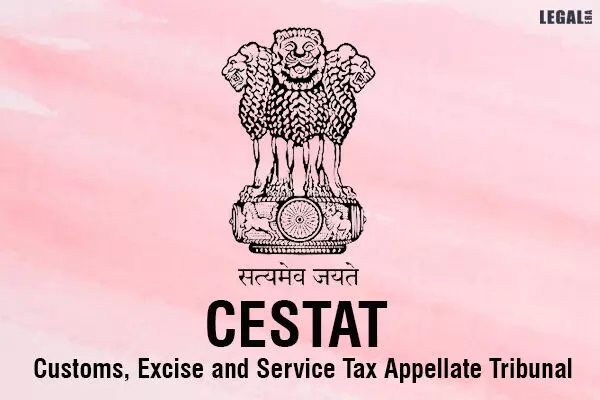- Home
- News
- Articles+
- Aerospace
- AI
- Agriculture
- Alternate Dispute Resolution
- Arbitration & Mediation
- Banking and Finance
- Bankruptcy
- Book Review
- Bribery & Corruption
- Commercial Litigation
- Competition Law
- Conference Reports
- Consumer Products
- Contract
- Corporate Governance
- Corporate Law
- Covid-19
- Cryptocurrency
- Cybersecurity
- Data Protection
- Defence
- Digital Economy
- E-commerce
- Employment Law
- Energy and Natural Resources
- Entertainment and Sports Law
- Environmental Law
- ESG
- FDI
- Food and Beverage
- Gaming
- Health Care
- IBC Diaries
- In Focus
- Inclusion & Diversity
- Insurance Law
- Intellectual Property
- International Law
- IP & Tech Era
- Know the Law
- Labour Laws
- Law & Policy and Regulation
- Litigation
- Litigation Funding
- Manufacturing
- Mergers & Acquisitions
- NFTs
- Privacy
- Private Equity
- Project Finance
- Real Estate
- Risk and Compliance
- Student Corner
- Take On Board
- Tax
- Technology Media and Telecom
- Tributes
- Viewpoint
- Zoom In
- Law Firms
- In-House
- Rankings
- E-Magazine
- Legal Era TV
- Events
- News
- Articles
- Aerospace
- AI
- Agriculture
- Alternate Dispute Resolution
- Arbitration & Mediation
- Banking and Finance
- Bankruptcy
- Book Review
- Bribery & Corruption
- Commercial Litigation
- Competition Law
- Conference Reports
- Consumer Products
- Contract
- Corporate Governance
- Corporate Law
- Covid-19
- Cryptocurrency
- Cybersecurity
- Data Protection
- Defence
- Digital Economy
- E-commerce
- Employment Law
- Energy and Natural Resources
- Entertainment and Sports Law
- Environmental Law
- ESG
- FDI
- Food and Beverage
- Gaming
- Health Care
- IBC Diaries
- In Focus
- Inclusion & Diversity
- Insurance Law
- Intellectual Property
- International Law
- IP & Tech Era
- Know the Law
- Labour Laws
- Law & Policy and Regulation
- Litigation
- Litigation Funding
- Manufacturing
- Mergers & Acquisitions
- NFTs
- Privacy
- Private Equity
- Project Finance
- Real Estate
- Risk and Compliance
- Student Corner
- Take On Board
- Tax
- Technology Media and Telecom
- Tributes
- Viewpoint
- Zoom In
- Law Firms
- In-House
- Rankings
- E-Magazine
- Legal Era TV
- Events
CESTAT: Customs House Agent Cannot be held Liable, When Bank Officials Failed to Detect Fake Documents

CESTAT: Customs House Agent Cannot be held Liable, When Bank Officials Failed to Detect Fake Documents
The Customs, Excise, and Service Tax Appellate Tribunal (CESTAT), Delhi, by its single member Binu Tamta (Judicial Member) observed that no violation can be levied against two appellants, being a Customs House Agent (CHA), when even the bank officials, despite verification, were not able to detect the fraudulent nature of the documents, to unearth the dubious plan of the exporter.
The facts leading to the present case were that specific intelligence was gathered by the officers of Directorate of Revenue Intelligence, Delhi Zonal Unit that non-existent firm M/s Anand Enterprises, which had filed 52 shipping bills for export of Ready-Made Garments (RMG) at Inland Container Depot, Tughlakhabad, New Delhi to various countries under duty drawback scheme and an amount of Rs. 1,88,23,316 was sanctioned to the firm towards duty drawback.
Acting on the said intelligence, DRI requested to withhold the duty drawback pending to any to M/s Anand Enterprises.
On further investigation, it was found that a dubious plan was hatched by Shri Anand Sharma, proprietor of bogus firm M/s Anand Enterprises, which forged the documents of one Shri Anand Sharma by superimposing his own photograph on Election Card which was issued to real Shri Anand Sharma. The forged documents were created.
The allegations against the two appellants who were CHA were held accountable by the department for violation of the provisions of regulation 11(n) of the Customs Broker Licensing Regulation, 2013 (CBLR). Regulation 11(n) casts a duty on the customs broker to verify the antecedents of the exporter and the KYC documents before facilitating the clearance of goods.
Being aggrieved, separate appeals were filed by the two appellants before the Commissioner (Appeals), however, both the appeals were rejected and the penalty imposed was. Hence two separate appeals were filed by M/s KVS Cargo and M/s Him Logistics Pvt Ltd. against the order of the Commissioner (Appeals) before the ITAT.
The ITAT perused provisions of regulation 11 (n) of the Customs Broker Licensing Regulation, 2013, (CBLR) which cast duty on the custom broker to verify the antecedents of the exporter and the KYC documents before facilitating clearance of goods.
“There is no doubt that an obligation has been cast on the CHA / CB under the CBLR so as to ensure the documents as required for the purposes of enabling the export are forwarded to the Customs. Infact they are the link between the exporter and the Customs department, therefore has an important and responsible role to play while providing their services,” the ITAT opined.
However, noting the facts and documents, the ITAT remarked that in this scenario to attribute any responsibility on the CHA to have verified the authenticity of these documents or the identity of the exporter seemed to be too much and unpractical. It was absolutely impossible to expect from a CHA to act with such diligence that he could ascertain the veracity of the documents which even the departmental authorities could not ascertain, stated the ITAT.
It observed, “if the Bank officials despite verification are not able to detect the fraudulent nature of the documents, how can one expect from CHA who is not even a public official to unearth the dubious plan of the exporter.”
In view of the findings the ITAT, set aside the impugned orders.


